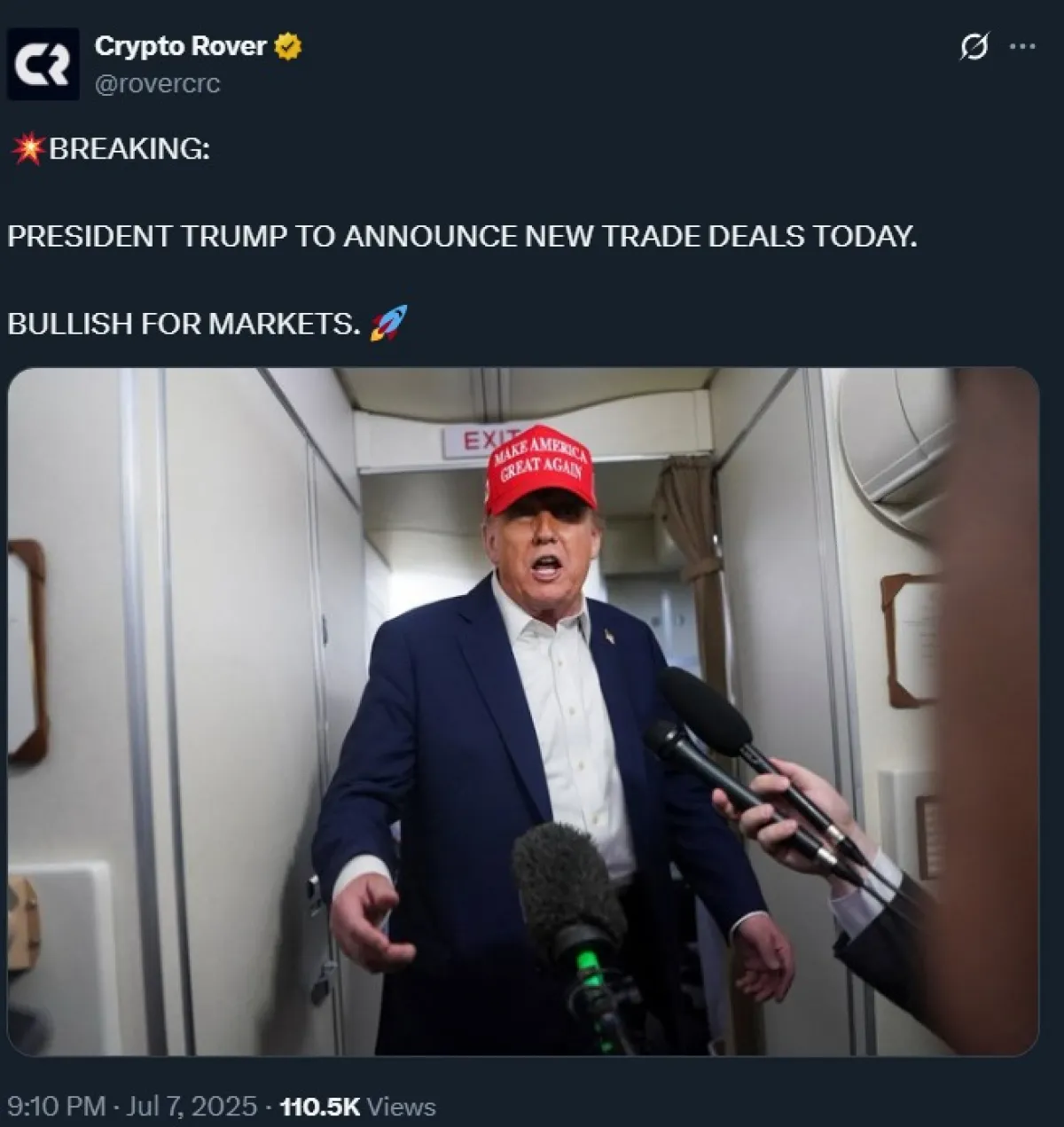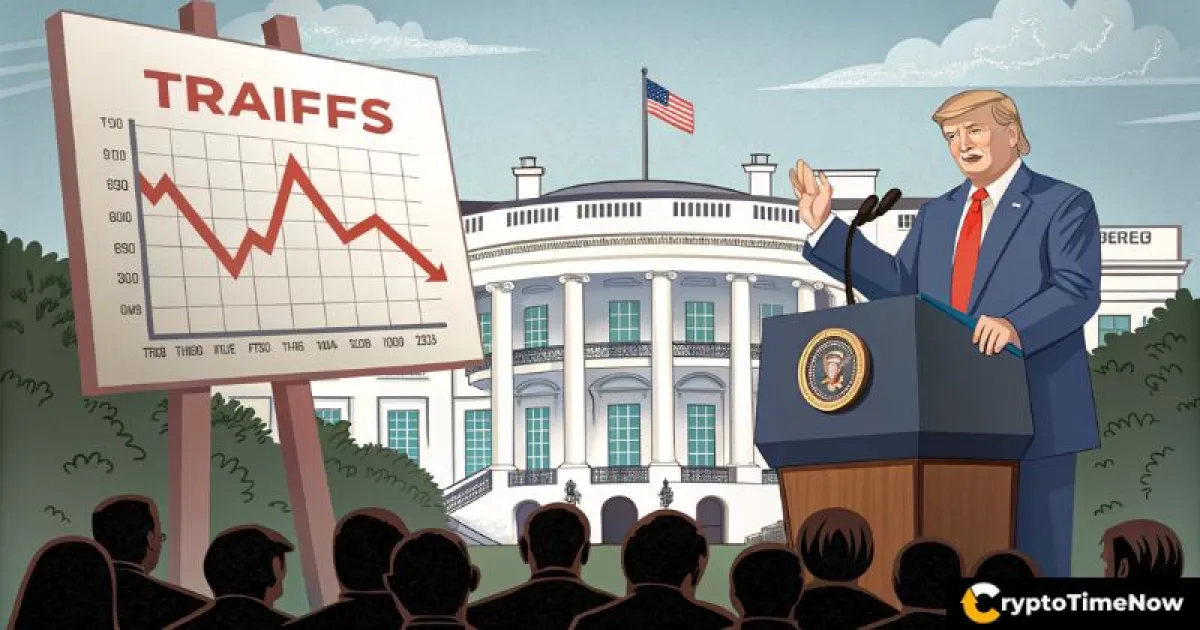President Donald Trump will announce on Monday at noon a series of trade deals and new tariffs. This is anticipated to be backed by dramatic tariff changes and freshly negotiated agreements with various nations.
A welcome surprise seems to be on the cards as Trump has taken centre stage on trade, where a lot of attention is being given by the world markets as well as by the American industry magnates. Trade experts say that letters have already been dispatched to countries not yet completed trade agreements with the United States.
According to these letters, “possible tariff increases are described in case agreements are not implemented in the near future.”

The government has provided a strict deadline indicating that such tariffs should be implemented as of August 1. The relocation is part of the larger plan to increase the trade capability of America and decrease its reliance on foreign supply chains.
Also Read: Japanese Bank Eyes Solana for Stablecoin Issuance, SOL the Next Big Thing?
Tariff Leverage Politics Point to Stiffer American Trade Stance
The move to send pre-emptive tariff letters is seen as a harder point on countries that are yet to strike trade deals with the U.S. Trump will probably emphasize that those countries that stall agreements risk paying increased taxes on imports coming into the American economy.
Industry sources reckon that such a strategy can affect a very wide variety of segments, such as automotive, steel, agriculture, and electronics. In case of the new tariffs, it is likely to be directed to the nations already criticised by Trump, regarding trade imbalance or intellectual property issues.
This approach resembles the previous trade war efforts by Trump during his presidency, which did not benefit the U.S. economy very well. There was a resultant protection to some industries, although the retaliatory tariffs were detrimental to others, especially the farmers and exporters. U.S. economic officials are preparing for today’s noon announcement on global trade strategy.
The world markets prepare to take a hit as policy uncertainty increases.
The announcement has created market turmoil with investors yet to know the details of the countries and products that would be affected. Stocks in the global arena experienced minor declines at the beginning of trading, and commodity prices were volatile as a result of tariff concerns.
According to economists, the statement can cause instability in the markets in the short term, particularly in the case of retaliation by major trade partners of the U.S. Nevertheless, according to Trump supporters, the ultimate prospect is to achieve more beneficial rules for American corporations and increase national production.
According to officials of the White House, “some of the new agreements will provide mutual tariffs relief, greater American exports, and more protections of their IPs.” Nevertheless, the exact number of countries that have accepted the latest propose by Trump is not evident.
Responses of the Lawmakers and Business Leaders Before the Official Communication
There is a mixed reaction expressed by business groups and lawmakers in the prelude to the official announcement. Others have cheered on the new emphasis on trade enforcement, particularly on industries that have long lamented unfair competition.
Other experts, however, warn that blanket tariffs may increase the prices paid by the U.S. consumer and manufacturers. Members of Congress, both parties, are pressuring Trump to pursue principled, intelligent trade deals instead of sweeping retaliatory action.
As the August 1 deadline is approaching, attention will be focused on the next moves of Trump. It is yet to be determined whether these new trade actions may result in better deals or lead to new trade wars. However, there is one thing we can see for sure: the trade agenda of America is taking yet another daring and doubtful turn.



















